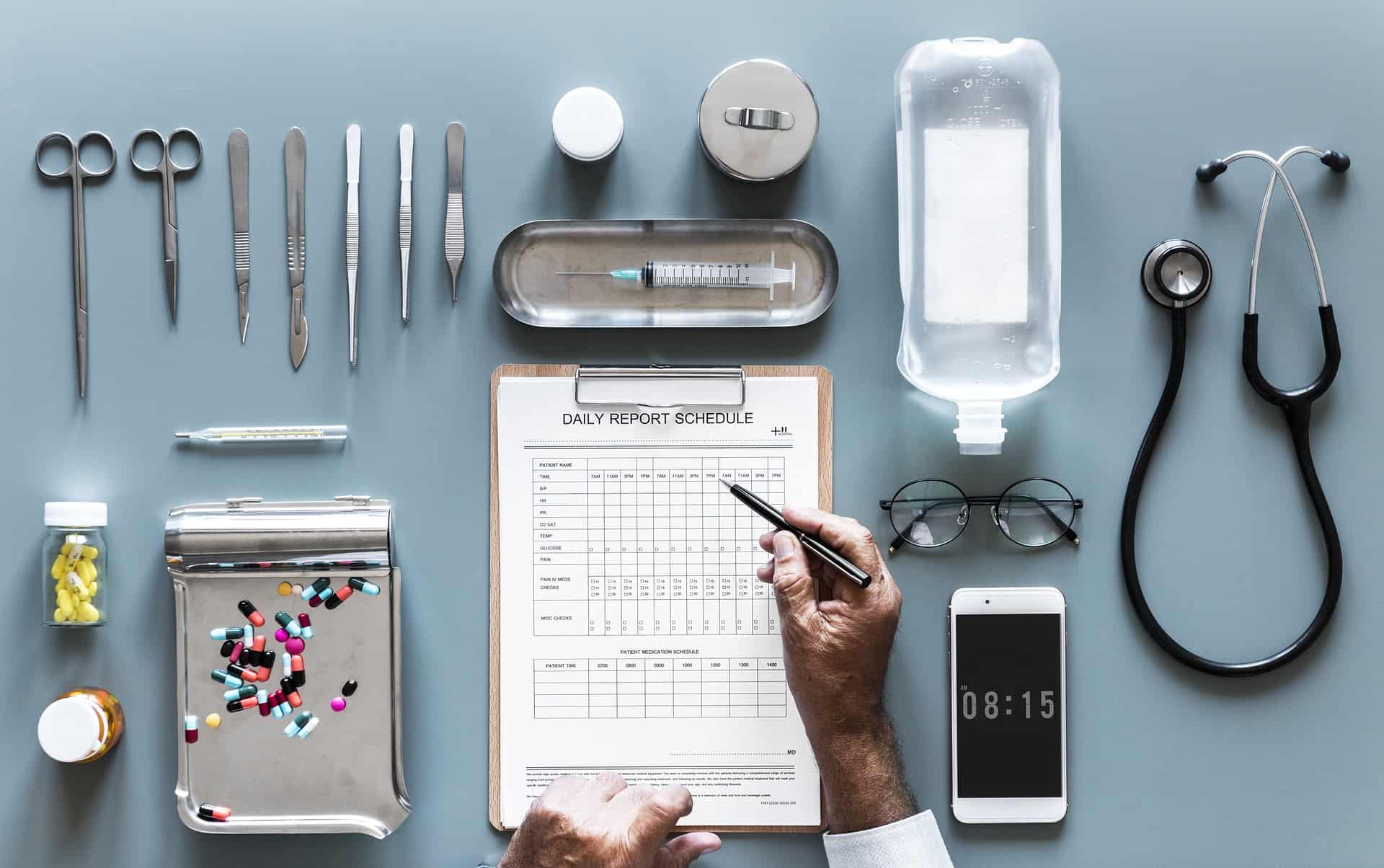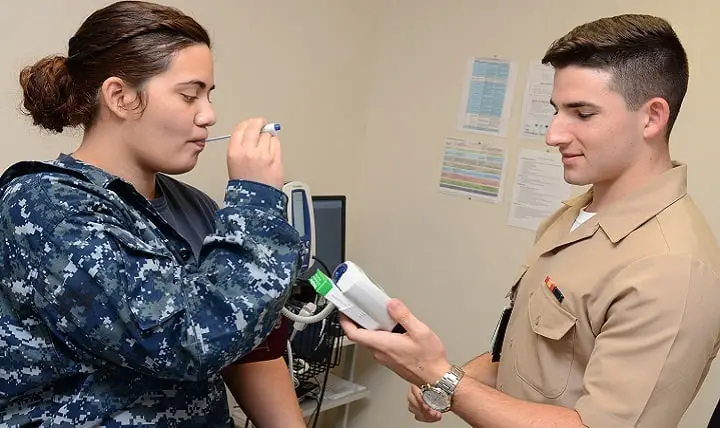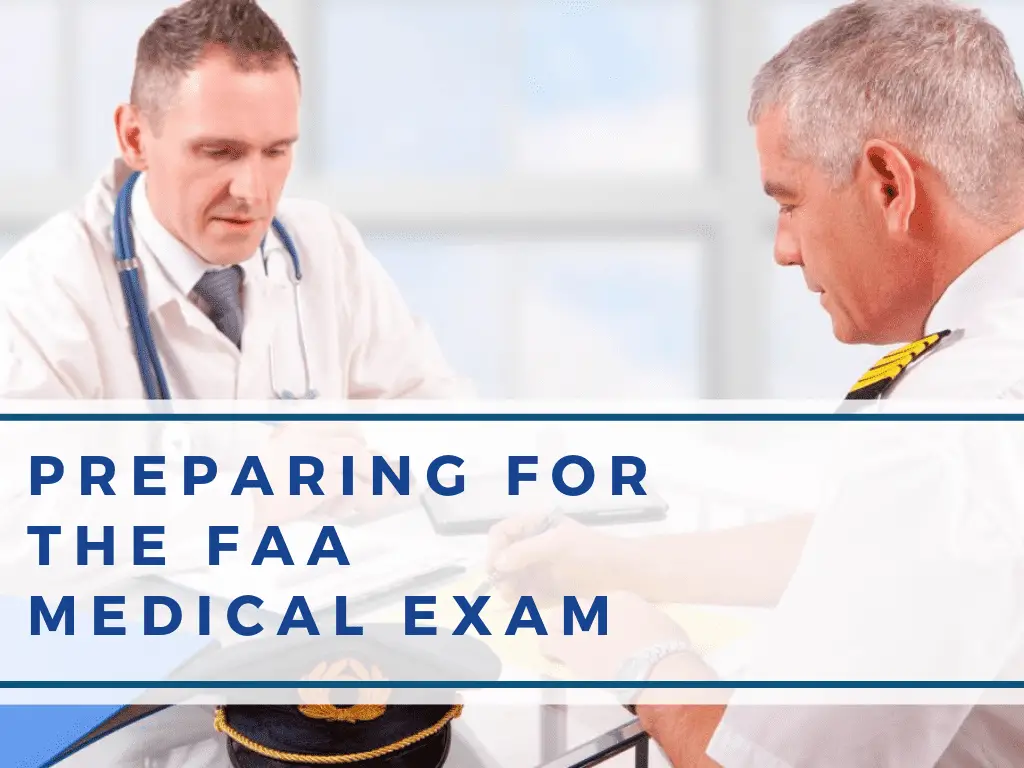Table of Contents
*This post may contain affiliate links. As an Amazon Associate we earn from qualifying purchases.
Becoming a certified pilot takes time, money, and effort – but no matter how much you study, you probably won’t be allowed to fly unless you pass the FAA medical exam. This isn’t optional, but many people don’t even know what the exam covers. Relax – we’re going to walk you through the most important parts you need to know.
Who Needs To Pass The Exam?
Unless you’re getting a Sport Pilot certificate – and even some of those need to get tested – you need to take the FAA medical exam before you begin flying solo or earn your pilot certificate. For most pilots, this means the exam is something to get out of the way as quickly as possible.
How Easy Is It To Pass?
The good news is that the FAA medical exam is pretty easy to pass. If you’re a reasonably fit adult with no serious conditions, chances are you’ll pass with no problem at all. However, there are some conditions that could restrict you from becoming a pilot. It’s better to find out early on, rather than waiting until after you’ve spent thousands of dollars and hundreds of dollars preparing.
Some health problems will require you to get a Special Issuance certificate. In short, this involves demonstrating that a known health issue will not endanger the public or stop you from safely flying a plane. Depending on the condition, you may have to take a practical test, a medical flight test, or a medical evaluation. Most of these certificates need to be reauthorized on a regular basis.
How Does It Work?
The exam starts with the FAA’s MedXPress system, which collects relevant information for the rest of the process once you’ve gotten your exam login. After that’s done, you’ll need to schedule an appointment with an Aviation Medical Examiner (or AME) certified by the FAA. The in-person examination is required to complete your medical application.
When the exam starts, your AME will go over the information you submitted and look for anything that could delay the process. From there, things vary based on the type of exam you need.

Most people only need a third-class medical exam, which checks for necessary things like visual acuity, hearing, and previous health issues that required surgery. You can also expect to undergo a urinalysis (to look for signs of disease), a blood pressure check, and a few questions on mental health. If you’re having a first-class exam, you’ll need an electrocardiogram to check the health of your heart.
Other parts of the medical exam are determined by your personal health history. Once the exam is done, your AME will either approve the application, reject it, or send it to the FAA for additional review.
How Likely Is It That I’ll Be Denied Certification?
That depends on your overall health. Most people pass the exam with no serious problems and get approved even if the FAA needs to review it first. Outright rejections are relatively rare, and usually only occur when there’s a significant component you clearly don’t meet. However, even if your examiner rejects it – and most won’t if you ask them to send it for review instead – you’re allowed to appeal it to the FAA.
The likelihood of success here depends on your history. For example, if you have a history of alcoholism, that’s a major red flag – but if you can demonstrate that you’ve been sober for years and completed rehab, they’re very likely to reconsider the rejection.
Similarly, Special Issuance certificates can get you past many medical problems. You may need to change your medicine or wait until the symptoms of a disease vanish, but it’s rare for denials to be permanent unless there’s no way to allow you to fly. It may involve a bit of (frustrating) waiting, but if you can drive a car, chances are you can fly a plane.
What’s The Difference Between The Three Types?
Three types of certificates are available, based on the type of plane you plan to fly and how many passengers you’re likely to carry. Essentially, riskier flights have stricter requirements.
Casual pilots – including students, private pilots, and sport pilots – only need to get a basic third-class certificate. Commercial pilots have to obtain a second-class certificate, while airline pilots need to get the first-class certificate.
Even if you’re a student, consider what sort of planes you want to fly in the future. If you’re going to do commercial or airline flights, it’s best to take the appropriate exam right from the start. That way, you’ll be ready when it’s time to fly, rather than realizing you have to go through the whole process all over again.
How Much Does It Cost?
Your AME determines the cost of the exam, and it usually ranges between $75 and $200 depending on the type of certification you’re going for. If you need a Special Issuance certificate, expect to pay more for your medical exam.
What Things Does The Exam Cover?
The FAA medical exam is described in great detail in the Guide for Aviation Medical Examiners. You don’t need to read all of this unless you want to become an examiner yourself, but it’s recommended that you look over the table of contents and any specific points you feel are relevant to your situation.
As described in the guide, there are about 64 major elements of the FAA medical exam. Most of these are simple and straightforward in the exam itself – for example, your height and weight can often be written down and provided or tested in a few minutes at the AME’s office. Others are more complicated. To help you prepare for the exam, here’s a brief overview of the most important items.
Items 3-10: Identification
This section includes things like your full name, Social Security Number (or equivalent, for international applicants), birthday, and other basic identifying information. These are essential identifiers for pilots and will be used throughout your career in aviation.
Item 17: Medication And Contacts
In this part of the FAA medical check, you’ll be asked to provide information about any prescription or nonprescription medicines you may be taken. Disclose this information no matter how minor you think it is, even if it’s “just” a multivitamin. If you are taking medications, expect your certification to be deferred to the FAA for further analysis and approval.
Similarly, there are restrictions on the use of contacts while flying, especially near vision contacts. The FAA does not permit the use of contacts for monovision correction while flying. That said, glasses are fine. Even if you prefer contacts, you may want to use glasses while flying and store a backup pair in your plane in case the first is lost.

Item 18: Medical History
This is one of the most important parts of the exam – and believe me, it’s thorough. Questions here range from things like headaches, allergies, and asthma to more serious issues like heart trouble, diabetes, and substance dependence.
Answering yes to anything in this category does not mean you are automatically denied your medical certification. The guide for AME’s is quite clear that decisions should be based on pertinent medical standards. In other words, if your condition is reasonably under control, it’s not going to hurt you. (If it’s not under control, you should seek or finish treatment, then apply for your medical certification.)
Items 25-48: General Physical Condition
This part of the exam covers a wide variety of potential physical conditions, ranging from issues in the ear, nose, and throat area to your eyes, lungs, viscera, skin, and even any scars or tattoos you have. If you don’t have a condition covered in Item 18, it’s not likely that anything found here will disqualify you – especially if you’ve had a full medical exam in the recent past.
For the most part, this section of the exam is designed only to verify that you’re still healthy. If you’ve noticed any aches, pains, or problems, be sure to point them out to your examiner. They’re not likely to disqualify you, but they may need to be treated before your certification can be issued.
Items 49-58: Ancillary Testing
This part of the exam covers your basic hearing, vision, and health. Like the general physical condition tests, the ancillary tests mostly exist to be sure you meet the basic minimum requirements. If you can see at 20/40, hear normal-volume conversations, and have no significant pulse or blood pressure issues, you’re almost certainly going to pass all of this.
Item 60: Comments
If you test positive for any condition, the AME will need to fill out some comments on their findings. This is likely to include their thoughts, as well as data on whether or not they feel something requires a delay or (rarely) should result in a denial of the certificate.
More commonly, the comments section is used to explain what might otherwise be a problem. For example, if a condition is being treated with medicine that doesn’t impair your ability to fly, you’re probably fine.
How Fast Can I Get My Certificate?
If you pass the exam and there’s no reason to delay, your AME can issue your medical certification immediately. If you don’t pass, certification will be deferred for review (the examiner may ask for more information while doing this), and if you fail outright, you’ll be given a letter that details exactly why you were rejected and what your options for appeal are.

